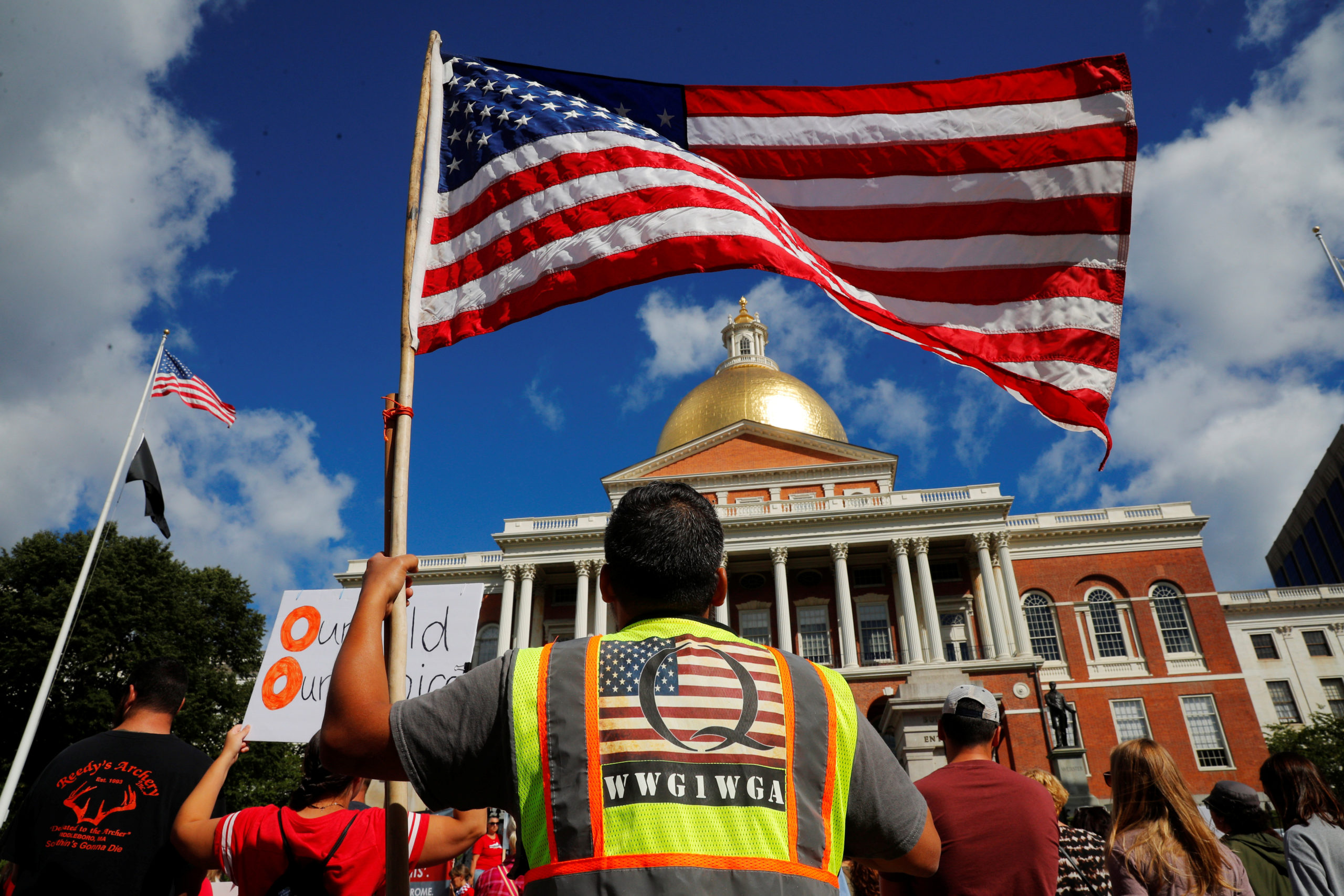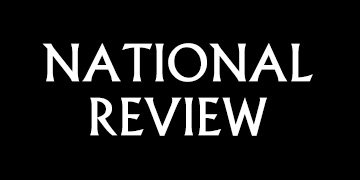March 4, 2021
Social Isolation and Community Disconnection are Not Spurring Conspiracy Theories
Findings from the January 2021 American Perspectives Survey

In the weeks following the attack on the US Capitol, a group of scholars at the University of Chicago sought to identify patterns among the assembled group of Donald Trump supporters. They found that the group was not solely composed of fringe extremist types, but rather, included “middle-class and, in many cases, middle-aged people without obvious ties to the far right.”[i] This was not a profile of people disconnected from their communities and operating at the periphery of civil society. The report went on: “They work as CEOs, shop owners, doctors, lawyers, IT specialists, and accountants. Strikingly, court documents indicate that only 9 percent are unemployed.”[ii] The profile that emerges from the study are of people who are neither economically deprived nor socially alienated.
What is notable about the amalgam of fringe political beliefs and conspiracy theories that were featured at the rally is not the disparity of ideas present but the types of people embracing them. Research suggests conspiracies are more attractive to those who are socially isolated or have more tenuous ties to their communities.[iii] However, the Survey Center on American Life’s January 2021 American Perspectives Survey found that certain political conspiracies have become widespread among the public and are particularly common on the political right.[iv]
Americans with robust social capital do not appear less susceptible to embracing these extreme ideas. New analysis shows that having an active social life and regular engagement with people in your neighborhood does not inoculate against believing in conspiracies.
Community Engagement and Conspiracies
Americans who have fewer social ties and a more tenuous connection to their community are not disproportionately likely to embrace conspiracy theories. Nearly four in 10 (39 percent) Americans who belong to at least two community groups believe in the deep state—an unfounded claim that an unelected group of government officials was working against the Trump administration—while only 23 percent of Americans who report having no community connections believe this claim is accurate.
The QAnon conspiracy is also more widely accepted among people who are more active in local community groups. More than one in five (22 percent) Americans who are members of at least two community groups believe in QAnon, compared to 13 percent of those with no membership in these groups. Finally, those with greater community attachment are also more likely than those who aren’t in any community groups (33 percent vs. 23 percent) to believe there was widespread voter fraud in 2020.
A Closer Look: Measuring Community Engagement
To measure the degree to which Americans were connected to their community, we developed a single scale that combined a series of questions about membership in various local groups and organizations. Due to COVID-19 constraints on formal participation, we relied on information about formal membership in local community groups as opposed to frequency of activities. These groups included a parent group, such as the Parent Teacher Association; a hobby group, such as a book club or knitting group; a church or place of worship; and a local civic association. A high engagement score indicates a respondent is involved in two or more groups, a moderate engagement score indicates a respondent is involved in one group, and a low engagement score indicates a respondent is not involved in any groups.
Overall membership in these types of community groups is not common. A majority of Americans are not a member of any of these social, religious, or civic groups, which we classify as “low community engagement.” Thirty percent of Americans report being members of at least one of these community organizations—“moderate community engagement”—and 12 percent are members of two or more of these groups, defined as having “high engagement” in the community. Group membership may be depressed due to the extensive social restrictions required by the COVID-19 outbreak.
Religious Identity and Religious Community
Religious congregations are unique among local civic and community organizations in that they serve as a social hub, providing socialization and emotional, spiritual, and financial support.[v] Regular participation in a religious community confers a range of social benefits and offers extensive opportunities to establish close ties with fellow congregants. Americans who belong to local religious congregations tend to be active in their communities and report lower rates of social isolation.[vi]
Although Americans who report belonging to a church or place of worship face different social constraints and have different social experiences, they do not appear any less susceptible to conspiracy theories. About four in 10 (39 percent) religious Americans who are members of a local congregation believe in the deep state, compared to 27 percent who lack formal membership in a church or religious congregation. Religious Americans who belong to a local church or place of worship are more likely than those who do not to believe there was voter fraud in the 2020 election (38 percent vs. 24 percent). Belief in QAnon does not vary significantly between those who belong and do not belong to a religious congregation (17 percent vs. 14 percent, respectively).
Among major religious groups in the US, white evangelical Protestants demonstrate a greater tendency to embrace conspiracy theories. More than one-quarter (27 percent) of white evangelical Protestants say the claim that Donald Trump has been fighting a group of child sex traffickers is mostly or completely accurate. This belief is far less prevalent among white Catholics (18 percent), white mainline Protestants (15 percent), religiously unaffiliated Americans (12 percent), and Hispanic Catholics (11 percent).
But it is not just QAnon; the rate of many conspiracy beliefs is consistently higher among white evangelical Protestants. A majority of white evangelical Protestants believe there was widespread voter fraud in the 2020 election (62 percent) and believe the deep state was undermining the Trump administration (55 percent). Nearly half (49 percent) believe antifa was mostly responsible for violence perpetrated at the US Capitol.
What’s more, white evangelical Protestants who report being members of a local church are generally more likely to believe in conspiracies than those who do not. For instance, 62 percent of white evangelical Protestants who belong to a particular church believe a group of unelected government officials had been conspiring against Trump, a view shared by less than half (43 percent) of those not formally connected to a church. There is an important exception: White evangelical Protestants who belong to a church are roughly as likely to believe the QAnon conspiracy is mostly or completely accurate as are those who are not members (27 percent vs. 25 percent, respectively).
Socializing with Neighbors
Although participation in local civic organizations and community groups is associated with greater sociability and lower levels of social isolation, many Americans develop robust personal relationships through informal networks. Being socially disconnected does not necessarily leave us more susceptible to believing in false or fantastic claims. In fact, people with robust social lives can fall victim to conspiracy thinking and fabricated claims just as easily as those who are more socially isolated.
Despite ongoing concerns about COVID-19, one-quarter of the public reports that they socialized with their neighbors in the past week. Nineteen percent say they interacted socially with their neighbors in the past month, 16 percent report having done so in the past six months, and 9 percent in the past 12 months. Roughly one-third of Americans report not having socialized with their neighbors in the past 12 months (20 percent) or never having done so (11 percent).
Americans who are less socially active in their communities do not appear more susceptible to believing in QAnon. Twenty percent of Americans who socialized with their neighbors in the past week report that the QAnon conspiracy theory is mostly or completely accurate, compared to 13 percent of Americans who seldom or never interact with their neighbors. This same pattern is evident among both Democrats and Republicans.
Americans who are more socially active in their neighborhood are not any more likely to believe Joe Biden was legitimately elected president. In fact, Americans who socialize most often with their neighbors have the highest propensity to hold false beliefs about the 2020 election. Nearly four in 10 (38 percent) Americans who interacted with their neighbors in the past week say Biden is an illegitimate president. In contrast, roughly one in four (27 percent) Americans who seldom or never socialize with their neighbors say Biden’s election was not legitimate. Notably, the link between regular social interaction with neighbors and belief that Biden was not legitimately elected is also found among Republicans but not Democrats.
Political Segregation and Conspiracies
Americans’ social lives have become steadily more segregated by politics. A survey conducted in 2020 found that more than half of Democrats and Republicans report having close social ties who share their political views. This is incredibly important when it comes to looking at the rise of conspiracy theories because previous research has shown both Democrats and Republicans are more likely to believe in conspiracy theories if they are socially segregated from people who do not share their political beliefs.[vii]
Republicans who report having a lot of friends who supported Trump in the 2020 election are much more likely to believe in the QAnon conspiracy theory than are Republicans who report having fewer connections with Trump supporters.[viii] Nearly one-third (34 percent) of Republicans who report having a large number of friends who are Trump supporters say the following statement is mostly or completely accurate: “Donald Trump has been secretly fighting a group of child sex traffickers led by prominent Democrats and Hollywood elites.” Republicans who have some, a few, or no friends who are Trump supporters (21 percent) are far less likely to believe in the accuracy of this claim.
The political composition of Americans’ friendship circles is also closely linked to belief in voter fraud. More than three-quarters (77 percent) of Republicans who report having a lot of friends supportive of Trump believe there was widespread fraud in the 2020 election. This view is far less common among Republicans who have fewer Trump-supporting friends. Only 43 percent of Republicans who report having some, few, or no friends who supported Trump in the 2020 election believe there was extensive voter fraud in 2020.
Who Is Most Susceptible to Believing in Conspiracy Theories?
Several personal traits are closely related to believing in conspiracy theories. For instance, white evangelical Protestants and Republicans both appear more likely than other Americans to believe in certain political conspiracies. And among both Democrats and Republicans, being surrounded primarily by people who share your political perspective also increases the likelihood of believing in conspiracies.[ix]
To better understand the factors that are most strongly associated with supporting conspiracy theories, we ran several logistic regression models predicting support for different claims: that Trump was secretly fighting a child sex trafficking ring, that unelected government officials were systematically attempting to undermine the Trump administration, and that antifa was primarily responsible for the violence at the US Capitol. Consistent with much of the previous analysis, political identity, specifically being Republican, is strongly predictive in all three models. Republicans are far more likely to believe in these conspiracies than Democrats are.
Consistent with previous work, formal education also had a strong consistent effect across the different models. Americans with higher levels of education are less likely to believe in conspiracies than those with fewer years of formal education. Notably, women are more likely than men to believe in QAnon and the deep state even after accounting for other important attributes, and being an evangelical Christian is associated with a greater propensity of believing in the deep state, but not QAnon or that antifa was involved in the attack at the US Capitol.
Except for perhaps political affiliation, no other attribute as strongly predicted belief in conspiracies as political segregation—as measured by the number of Trump supporters in one’s friendship network. Americans with a lot of Trump supporters in their friendship network have a far greater predilection to embrace political conspiracy beliefs, even after accounting for other personal characteristics, such as age, education, marital status, political identity, and religious affiliation.
Americans whose friendship networks are composed of a large number of Trump supporters had a 22 percent probability of believing in the QAnon conspiracy, while those with few if any Trump-supporting friends had only a 5 percent probability of embracing this belief. Americans with a large number of Trump supporters in their friendship group had a nearly 50 percent probability of believing that unelected government officials were acting against the interests of the Trump administration. Those with fewer or any social connections to Trump supporters had only an 11 percent probability of embracing this belief. Finally, Americans with a large number of friends who support Trump have far greater probability of agreeing that antifa was responsible for the violence at the US Capitol than those with few if any (47 percent vs. 18 percent, respectively).
Previous research has found that being socially isolated can prime people to believe in conspiracy theories. However, we find that community attachment does not predict conspiratorial beliefs.[x] Americans who report no connections to community groups are not any more likely to believe in QAnon, the deep state, or that there was rampant voter fraud in the 2020 election than those with more robust community ties are. Sociability also seems to make little difference. The frequency with which Americans socialize with their neighbors does not predict a belief in the deep state or that antifa was secretly involved in the attack at the US Capitol. Notably, Americans who interact frequently with their neighbors are slightly more likely to believe in QAnon than are those who socialize less often. However, differences in the predicted probabilities between those who socialize often with neighbors and those who do so infrequently are small, meaning that sociability makes little substantive difference in predicting whether someone will believe in QAnon.
Why Political Segregation Matters
A few years ago, David Roberts introduced the concept of “tribal epistemology” to describe how many Americans assess the validity of information and knowledge in a polarized environment where institutional trust is in short supply.[xi] Roberts argued that information is evaluated not by whether it conforms to empirical evidence, or observable fact, but by the degree to which it “supports the tribe’s values and goals and is vouchsafed by tribal leaders.”[xii]
This theory might explain why Americans with uniform political networks would be more susceptible to conspiracies. In socializing primarily with people who share our politics, an alternative “tribal reality” is more easily established and less likely to be challenged. Further, transgressions are more easily identified and punished. Thus, information and facts become instrumental in serving the political goals, and established sources of information are more effectively discredited.
This is evident in extremely low levels of trust in the media among Republicans whose friendship networks mostly include Trump supporters. Fewer than one in 10 (9 percent) Republicans with a lot of friends who support Trump say the news media can be trusted to do what is right, compared to 26 percent of those with few, if any, friends who support Trump.
Finally, having a politically homogenous friendship group is associated with not only a greater propensity to embrace conspiracies but also the intensity of these beliefs. Americans who have more close social connections to Trump supporters are more likely to believe in QAnon and believe it emphatically. Republicans who have a lot of Trump supporters in their friendship networks are roughly three times more likely to believe that the QAnon conspiracy theory is “completely accurate” than are those with fewer friends who support Trump.
Notes
[i] Robert A. Pape and Kevin Ruby, “The Capitol Rioters Aren’t Like Other Extremists,” Atlantic, February 2, 2021, https://www.theatlantic.com/ideas/archive/2021/02/the-capitol-rioters-arent-like-other-extremists/617895/.
[ii] Pape and Ruby, “The Capitol Rioters Aren’t Like Other Extremists.”
[iii] Matthew Hutson, ”Conspiracy Theorists May Really Just Be Lonely,” Scientific American, May 1, 2017, https://www.scientificamerican.com/article/conspiracy-theorists-may-really-just-be-lonely/; and Angela Haupt, ”Conspiracy Theories: Why Some People Are Susceptible and How to Protect Yourself,” Washington Post, October 19, 2020, https://www.washingtonpost.com/lifestyle/wellness/why-uncertain-times-make-us-susceptible-to-conspiracy-theories–and-how-to-protect-yourself/2020/10/16/21becf08-0f1a-11eb-8a35-237ef1eb2ef7_story.html.
[iv] Daniel A. Cox, ”After the Ballots Are Counted: Conspiracies, Political Violence, and American Exceptionalism,” Survey Center on American Life, February 11, 2021, https://www.americansurveycenter.org/research/after-the-ballots-are-counted-conspiracies-political-violence-and-american-exceptionalism/.
[v] Carmille L. Akande, ”How the Church Can Support Emotional Health,” Christianity Today, February 3, 2014, https://www.christianitytoday.com/women-leaders/2014/february/how-church-can-support-emotional-health.html.
[vi] Sunshine Rote, Terrence D. Hill, and Christopher G. Ellison, “Religious Attendance and Loneliness in Later Life,” Gerontologist 53, no. 1 (February 2013): 39–50, https://academic.oup.com/gerontologist/article/53/1/39/616116.
[vii] Daniel A. Cox and John Halpin, “Conspiracy Theories, Misinformation, COVID-19, and the 2020 Election,” Survey Center on American Life, October 13, 2020, https://www.americansurveycenter.org/research/conspiracy-theories-misinformation-covid-19-and-the-2020-election/.
[viii] To ensure we had large enough sample sizes, for this analysis we include Republicans and independents who lean toward the Republican Party.
[ix] Cox and Halpin, “Conspiracy Theories, Misinformation, COVID-19, and the 2020 Election.”
[x] Haupt, ”Conspiracy Theories”; and Hutson, ”Conspiracy Theorists May Really Just Be Lonely.”
[xi] David Roberts, “Donald Trump and the Rise of Tribal Epistemology,” Vox, May 19, 2020, https://www.vox.com/policy-and-politics/2017/3/22/14762030/donald-trump-tribal-epistemology.
[xii] Roberts, “Donald Trump and the Rise of Tribal Epistemology.”
Related Materials
January 2021 APS Topline Questionnaire








